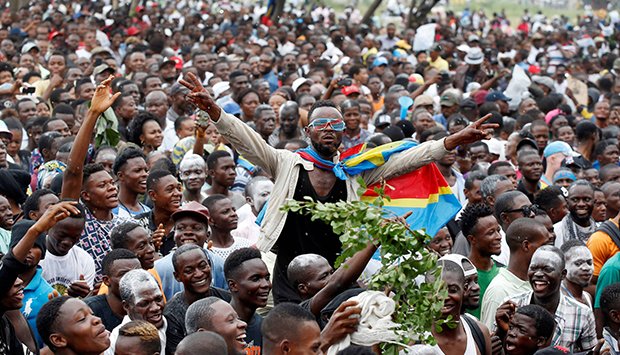Yesterday, the Democratic Republic of Congo (DRC) began the official campaign for the general elections scheduled for December 20th, amidst several uncertainties, such as the conditions for opposition candidates to convey their respective electoral messages.
The day scheduled for the plebiscite appears to be clouded by many doubts, even though the president of the Independent National Electoral Commission (CENI), Denis Kadima Kazadi, reaffirmed, on Wednesday, that everything would be in place within the deadline. “Are we ready to organize elections today?
No, but we are ready to organize the elections on December 20th and we will be ready to do so”, said Kadima quoted by AFO at a press conference at the organization’s headquarters.
According to the president of CENI, the number of candidates in the race for the various elections on December 20th – presidential, legislative (national and municipal) and communal councilors – “tripled” compared to the 2018 elections, going from around 35 thousand to 100 thousand.
In the field of voter registration, instability in the east of the country could deprive more than a million voters of the right to vote, according to the International Crisis Group (ICG) two weeks ago, but the number of registered voters almost reaches 44 million (43.9).
“That’s why, sometimes, we are unable to meet certain deadlines, not out of bad faith, but simply because the volume of work has increased exponentially, while the staff remains the same, the budget has not changed and the time is even shorter than in the previous process”, explained Kadima.
In the main race, the President and candidate to succeed him, Félix Tshisekedi – who came to power in 2018 under widespread accusations that he had allegedly lost the elections to Martin Fayulu – is running against, until he sees, 25 candidates, including Fayulu.
Other strong opponents are the former governor of Katanga province and businessman, Moïse Katumbi, the former Prime Minister, Adolphe Muzito, the Nobel Peace Prize winner, Denis Mukwege, and the former minister, Delly Sessanga. In a country where polls are scarce or non-existent, it is difficult to guess who could win if the elections were free and fair.
In 2018, CENI gave victory to Tshisekedi with 38.56% of the vote, narrowly beating Fayulu with 34.82% and easily defeating Emmanuel Shadary, the official party candidate of the outgoing President, Joseph Kabila, who obtained 23.83 %. Most independent observers, including the Catholic Church, believe, however, that Fayulu won these elections in a landslide.
Last week, six presidential candidates, including Fayulu, DenisMukwege and Moise Katumbi, issued a joint statement promising to work in coordination to prevent electoral fraud and demanding urgent measures from CENI to this effect.
The statement reveals nothing about the possibility of any candidate withdrawing in favor of another. On the contrary, it seems to reinforce the determination of all of them to carry out the electoral race separately over the next five weeks.



